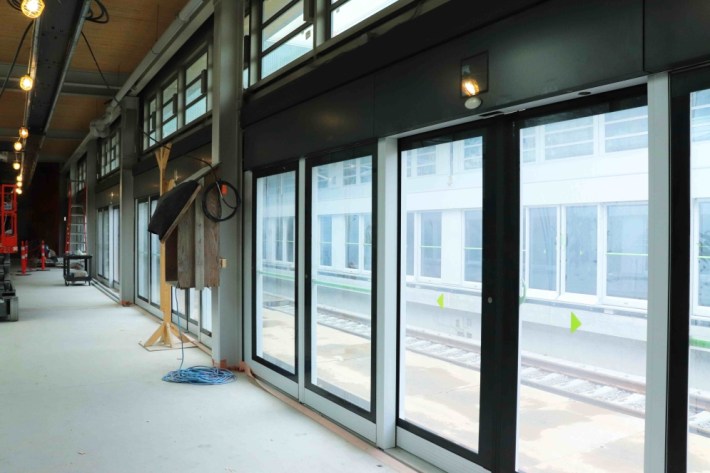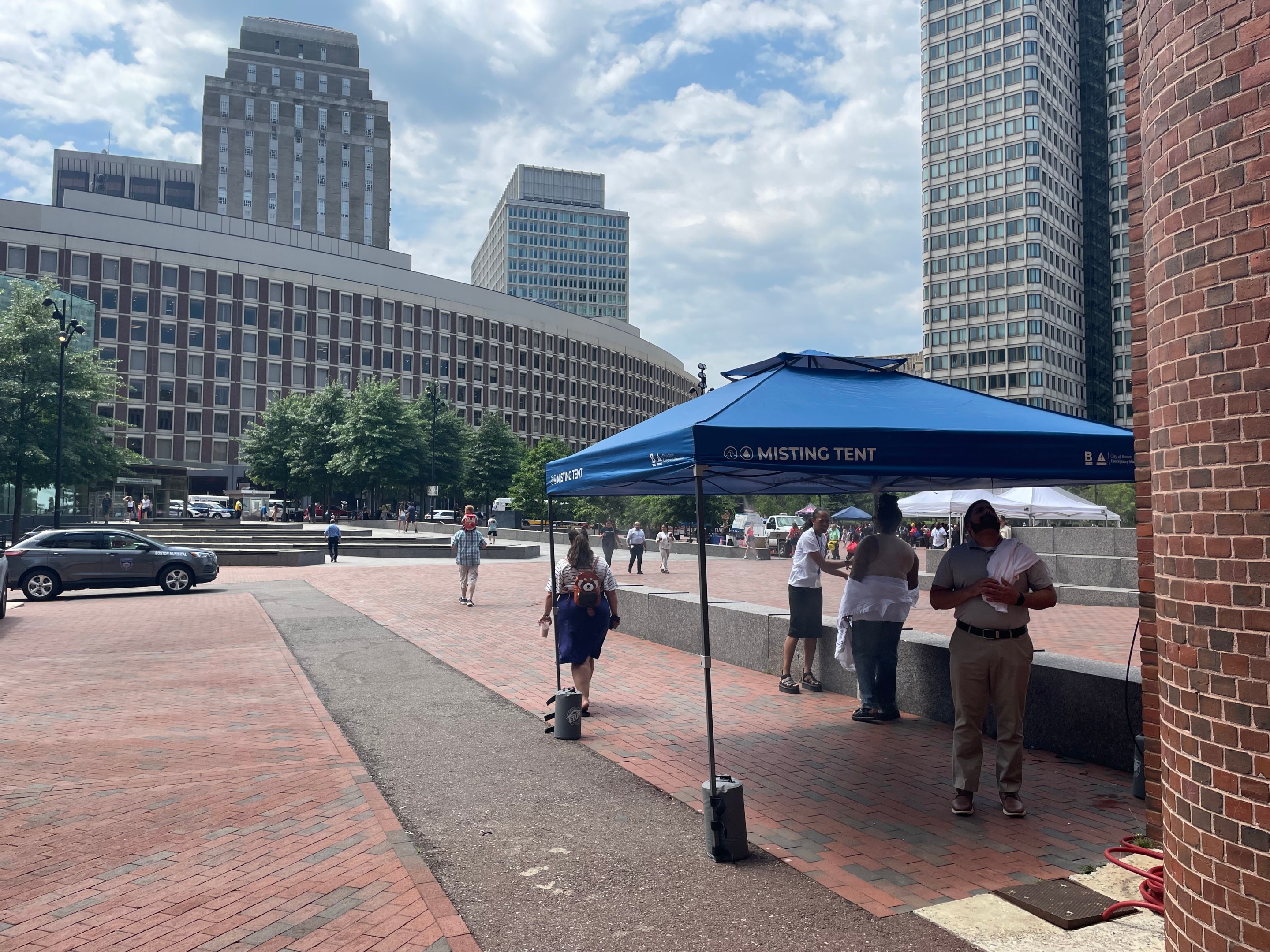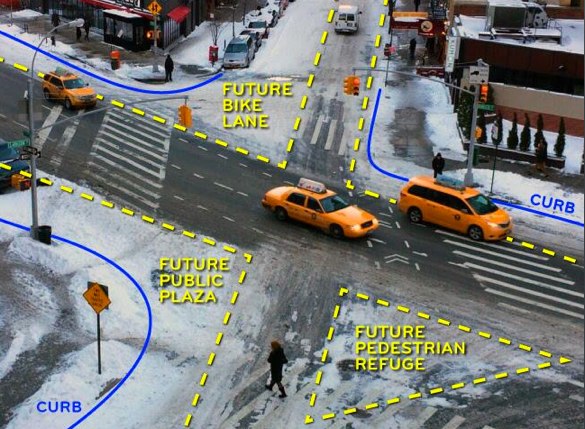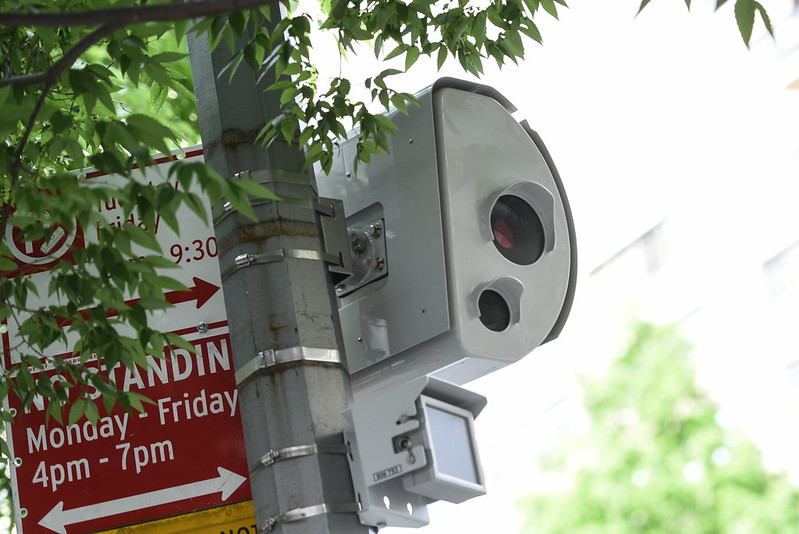As the heat index pressed past the century mark in the greater Boston region Wednesday afternoon, pedestrians, cyclists, and transit riders crowded into the shade of trees and struggled to keep cool.
The past three days have marked the City of Boston's second "heat emergency" of the summer, following an earlier heat wave on June 18-20.
City workers have been set up emergency cooling centers and pop-up misting stations, like the one pictured above, across the city.
On City Hall Plaza, the city's Office of Emergency Management had set up a "misting station," a pop-up tent ringed with misting hoses that were connected to a nearby outdoor faucet.
"We were debating whether to come downtown today, or wait until Friday," said Gina Ingrando of Everett, who stopped with her sister under the misting station Wednesday afternoon. "We've had to stop and take a break a few times today to cool off."
According to Stacia Sheputa, a spokesperson for Boston's Environment Department, Boston's Emergency Medical Services witnessed a 10-15 percent increase in 911 calls during the June heat wave, and the city is preparing for a similar increase in emergency calls this week.
Pavement and the 'heat island'
Two years ago, Mayor Wu's administration published its Heat Resilience Solutions for Boston report, also known as the "heat plan."
The study found that motor vehicle infrastructure like wide streets and expansive parking lots absorb heat to contribute to sweltering temperatures – especially in the city’s poorest neighborhoods.
The plan recommended mitigating the "urban heat island" effect with, among other things, “road diets and narrow lane widths that expand sidewalk dimensions (and) accommodate street trees and plantings.”
But two years after that plan's release, the city has only been able to execute a handful of small projects to replace heat-absorbing asphalt with shade and greenery.
A long-planed Public Works Department project to rebuild Cummins Highway in the Mattapan neighborhood, one of the five Environmental Justice communities spotlighted in the Heat Plan, is finally under construction this summer.
When it's complete, Cummins Highway will be transformed from a four-lane highway to a narrower two-lane street with accessible sidewalks, safer crosswalks, protected bike lanes, and over 100 new trees.
Underground, subway riders endure hotter temps
In the Downtown Crossing MBTA station on Wednesday, where temperatures were several degrees warmer than above ground, we found Emmett, a Transit Ambassador, sipping from a cup of ice water and standing in front of a fan.
"It's a whole thing," he told StreetsblogMASS. "We're supposed to be able to go into the air conditioned booth when it's over 90 degrees, but that doesn't factor in the heat index, or what the temperature down here actually is. Even when they give us A/C, it's only for ten minutes at a time."
The T's subterranean subway stations can get considerably hotter than the surface on hot days, thanks to all the excess heat generated from trains' engines, brakes, and air conditioning units. The MBTA subway system as a whole consumes over a gigawatt-hour of electricity on an average day, which in turn gets dissipated into over 3 billion BTUs of heat.
Katie Calandriello, a policy analyst for TransitMatters, says that other subway systems around the world have installed automated doors on the edges of station platforms, which allows them to air-condition passenger waiting areas.
"It’s a good climate adaptation idea, but it’s also for safety as well: it’s a preventative measure to keep people and objects from falling onto the tracks. So many other places across the world have done it," Calandriello told StreetsblogMASS.

In a 2022 report, the business group A Better City estimated that the T could install platform doors at its busiest downtown subway stations for about $25 million.
Platform doors would enable "the installation of air conditioning to help enhance the transit experience, a benefit customers may increasingly expect as temperatures continue to increase due to climate change," wrote A Better City.






